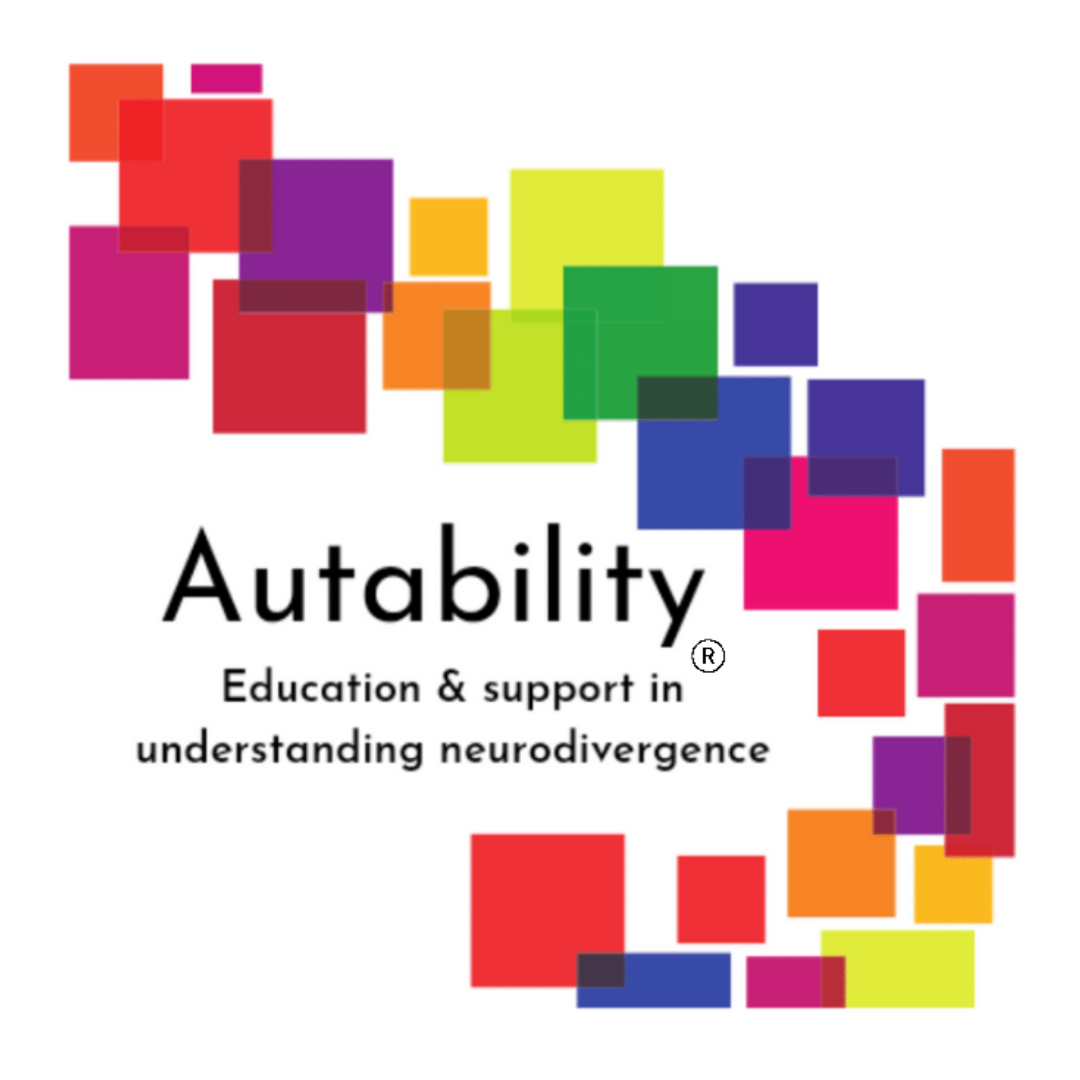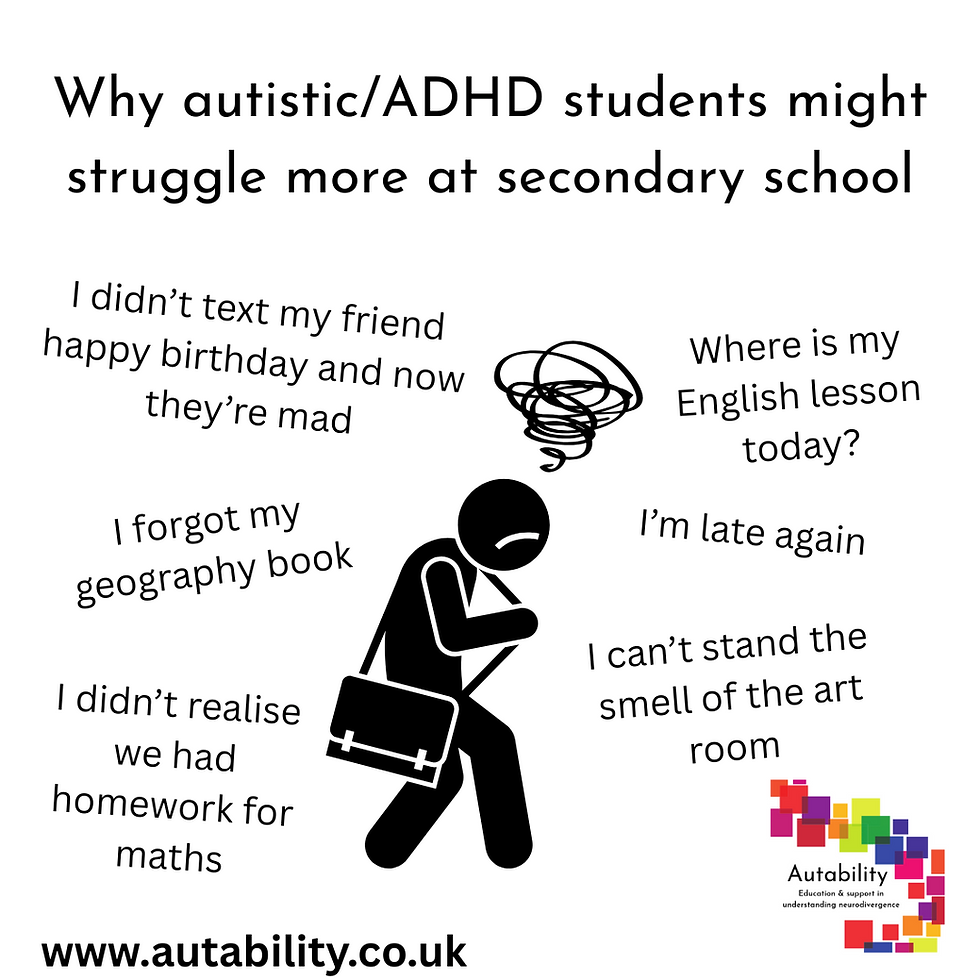Understanding vs remembering when you have ADHD
- Autability

- Oct 7, 2025
- 2 min read
For ADHD children, learning can be a challenge. But its not necessarily that they don't understand the topic.
Very often, your child clearly gets the subject they're learning. They understand the mathematical equation, they grasp the historical event, they can explain it back to you. But the next day? It's like starting from scratch.
Understanding and remembering are two different things. Your child's understanding is working beautifully. When information is right in front of them, their brain can process it, analyse it, and work with it. The challenge comes with working memory. This is the brain space that holds and manipulates information temporarily and helps transfer it into long-term storage.
For many ADHD and autistic children, working memory can be thought of like a desk space. That desk is smaller than most or gets cluttered more easily. They can absolutely use the tools on the desk, but keeping multiple things there at once or reliably filing them away for later takes more effort and repetition. It isn’t about their intelligence. It is about the way their brain processes and stores information.
Your child may need to encounter information multiple times before they can remember it. When this happens, it isn’t regression. It is their brain building long-term memories.
There are many ways to help your child. Find out what they are learning at school and make sure you find fun ways to continue that learning at home. Use your language carefully, rather than saying “don’t you remember…..” say “lets remind ourselves of ….”
Make sure you use multi sensory learning by presenting information in different ways like visual, verbal, and hands-on. The more connections their brain makes to the material, the more paths they build to retrieve that learning from memory.
When introducing new material, minimise distractions and other demands on their working memory, and most importantly, don't try to teach two new things at once.
Trust the process. Trust your child. And remember, slow progress is still progress.

.png)



Comments